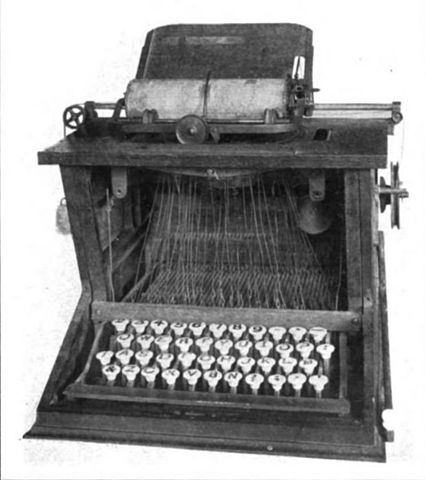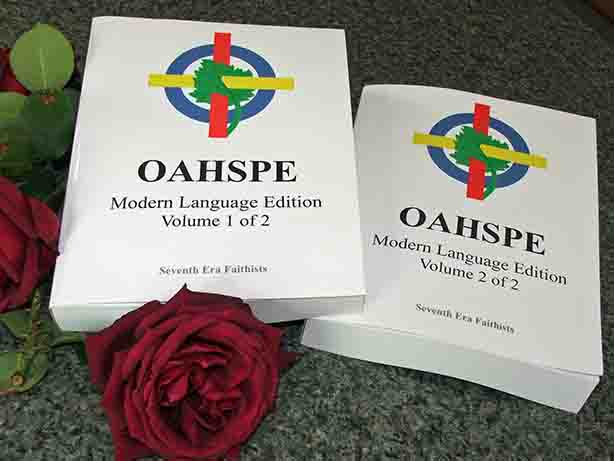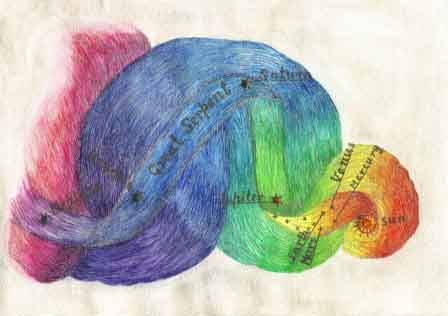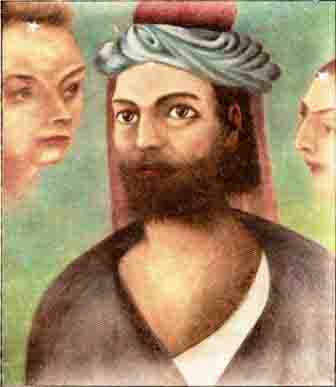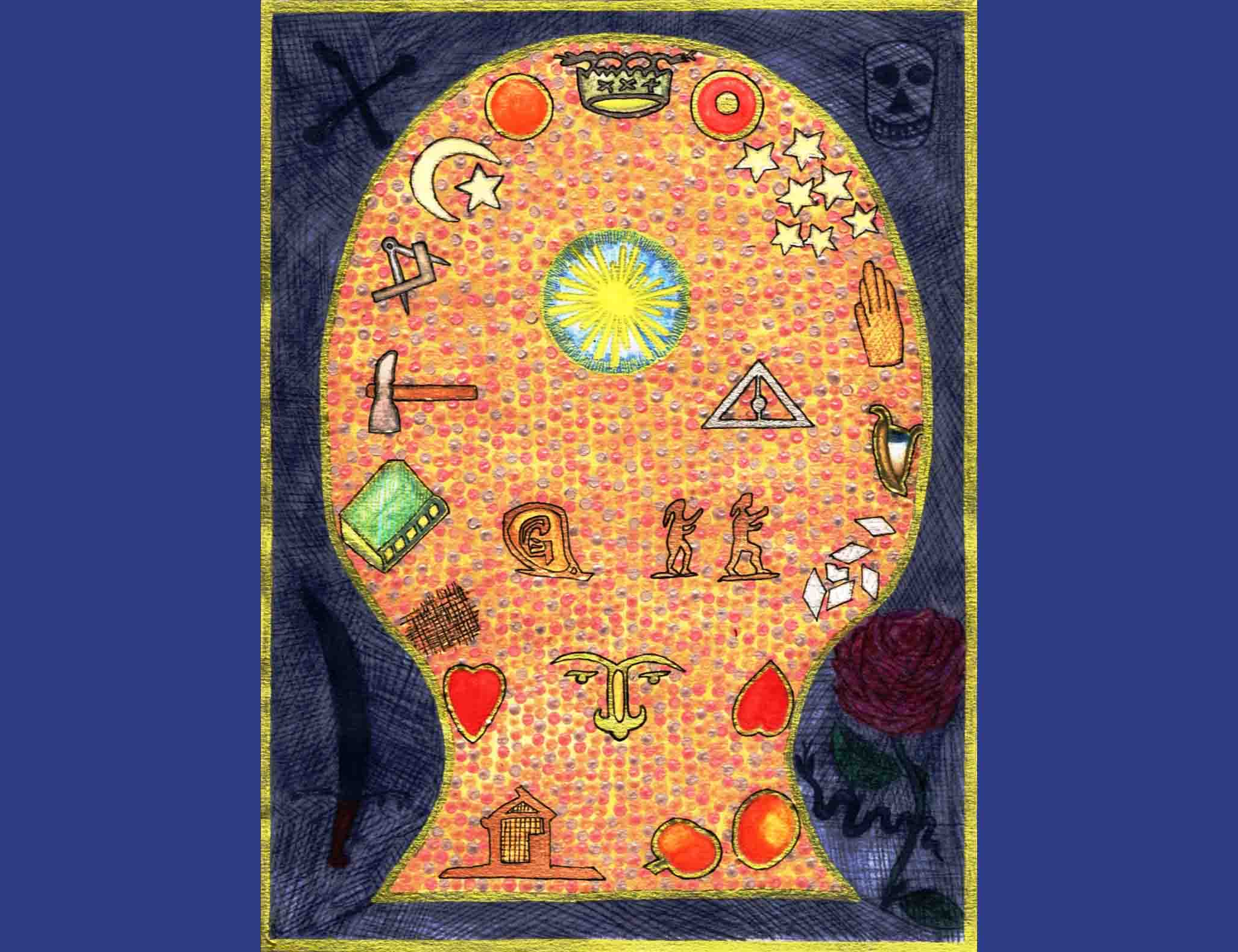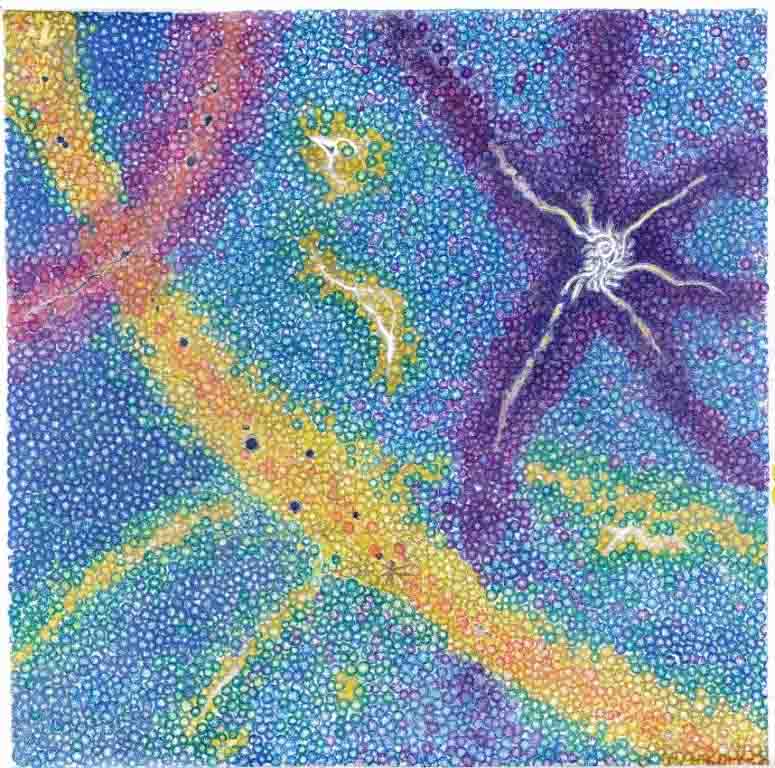The
Banner of Light Letter
John Newbrough's letter, dated January 21, 1883 to the Banner of Light, a popular Spiritualist Weekly Periodical of the day.
To the Editor of The Banner of Light,
Boston, Mass.
Dear Sir,
In compliance with your request that I furnish for publication a
brief article in regard to the writing of Oahspe, the new bible, I
cheerfully proceed to do so.
You have observed, no doubt, that in Oahspe no mention is made
of the manner in which the book was written, nor by whom. Well,
was it not plain to anybody acquainted with such matters, that any
statement on my part would not be believed by persons unacquainted
with spiritual manifestations? And had I said that I myself wrote it,
my own acquaintances would have known better. Had I said that the
angels wrote it through my hands, then I would have been denounced
as a pretender.
Again, if a book have merit, what matters it as to
who wrote it? And if it have no merit, then certainly it does not
matter whence it came. The time has been when the name of an
author clothed his product with some sort of authority. I rejoice that
that day is past; that man-worship is at an end, and that all books,
including Bibles, are perused not as authorities, but as pastimes, to
lead
us nearer and nearer to the Everlasting Light. And if a man turn out
a good book, I accord him little more credit than I would a ripe apple
for being on the sunny side of the tree. But I rejoice most of all
because our Heavenly Father, through his angels co-operating with our
forefathers, provided us a government that protects us in publishing
our highest conceptions, regardless of creeds or dogmas. Why, to-day
we have Protestant preachers in their pulpits denying the inspiration
of the Old and New Testaments, and only in the slightest possible
degree less than Thomas Paine. They begin to judge so-called sacred
books according to what they are, and not by a supposed authority.
This is progress, undoubtedly.
On reflecting on these things, it was concluded to publish the first
edition of Oahspe without any reference to its authorship.
No attempt
has been made to conceal the method in which, it was written, but most
of the particulars have been told from time to time to inquiring
friends.
Briefly, then, Oahspe was mechanically written through my hands
by some other intelligence than my own. Many spiritualists are
acquainted with this automatic movement of the hands, independent of
one's volition. There are thousands and thousands of persons who
have this quality. It can also be educated, or rather, the
susceptibility
to external power can be increased.
In my own case I discovered,
many years ago, in sitting in circles to obtain spiritual
manifestations,
that my hands could not lie on the table without flying off into these
"tantrums." Often they would write messages, left or right, back-
ward or forward, nor could I control them in any other way than by
withdrawing from the table. Sometimes the power thus baffled would
attack my tongue, or my eyes, or my ears, and I talked and saw and
heard differently from my normal state.
Then I went to work in
earnest to investigate spiritualism, and I investigated over two
hundred
mediums, travelling hundreds and hundreds of miles for this purpose.
Often I took them to my own house and experimented with them to
my heart's content. I found that nearly all of them were subject to
this
involuntary movement of the hands, or to entrancement. They told me
it was angels controlling them. In course of time, about ten or fifteen
years, I began to believe in spiritualism. But I was not satisfied with
the communications; I was craving for the light of heaven. I did not
desire communications from friends or relatives, or information about
earthly things; I wished to learn something about the spirit-world;
what the angels did, how they travelled, and the general plan of the
universe.
So, after awhile I took it into my head that wise and exalted
angels would commune better with us if we purified ourselves physically
and spiritually. Then I gave up eating flesh and fish, milk and butter,
and took to rising before day, bathing twice a day, and occupying a
small room alone, where I sat every morning half-an-hour before
sunrise,
recounting daily to my Creator my shortcomings in governing
myself in thought and deed. In six years' training I reduced myself
from two hundred and fifty pounds down to one hundred and eighty;
my rheumatism was all gone, and I had no more headaches. I became
limber and sprightly. A new lease of life came to me.
Then a new condition of control came upon my hands; instead of
the angels holding my hands as formerly, they held their hands over my
head (and they were clothed with sufficient materiality for me to see
them) and a light fell upon my hands as they lay on the table. In the
meantime I had attained to hear audible angel voices near me.
I was
directed to get a typewriter, which writes by keys, like a piano. This
I
did, and I applied myself industriously to learn it, but with
only
indifferent
success. For two years more the angels propounded to me
questions relative to heaven and earth, which no mortal could answer
very intelligently. I always look back on those two years as an enigma.
Perhaps it was to show me that man is but an ignoramus at best; perhaps
I was waiting for constitutional growth to be good.
Well, one morning
the light struck both my hands on the back, and they went for the
typewriter,
for some fifteen minutes, very vigorously. I was told not to
read what was printed, and I had worked myself into such a religious
fear of losing this new power that I obeyed reverently. The next
morning, also before sunrise, the same power came and wrote (or
printed rather) again. Again I laid the matter away very religiously,
saying little about it to anybody. One morning I accidentally (seemed
accidental to me) looked out of the window and beheld the line of light
that rested on my hands extending heavenward like a telegraph wire
towards the sky. Over my head were three pairs of hands, fully
materialised; behind me stood another angel, with her hands on my
shoulders. My looking did not disturb the scene; my hands kept right
on, printing . . . printing.
For fifty weeks [beginning Spring 1880] this continued, every morning
half-an-hour or so
before sunrise, and then it ceased, and I was told to read and publish
the book Oahspe.
The peculiar drawings in Oahspe were made with
pencil in the same way. A few of the drawings I was told to copy
from other books, such as Saturn, the Egyptian ceremonies, etc.
Now during all the while I have pursued my vocation (dentistry)
nor has this matter nor my diet (vegetables, fruit and farinaceous
food)
detracted any from my health or strength, although I have continued
this discipline for upwards of ten or more years. I am firmly convinced
that there are numberless persons who might attain to marvellous
development if they would thus train themselves.
A strict integrity to one's highest light is essential to development.
Self-abnegation and purity should be the motto and discipline of every
one capable of angel communion. With this in their practice,
we might have enough bibles in a little while to deluge the religious
world. But since talking of one's self is the greatest
damage one can do to his own mediumship, I thus close.
Yours truly,
J. B. NEWBROUGH.
New York, Jan. 21st, 1883. J. B. N.
This letter was printed in the Banner of Light, June 2, 1883 and the English Medium and Daybreak March 2, 1882 (Spiritualist Journals)
Typewriterwhich was used for the OAHSPE MANUSCRIPT
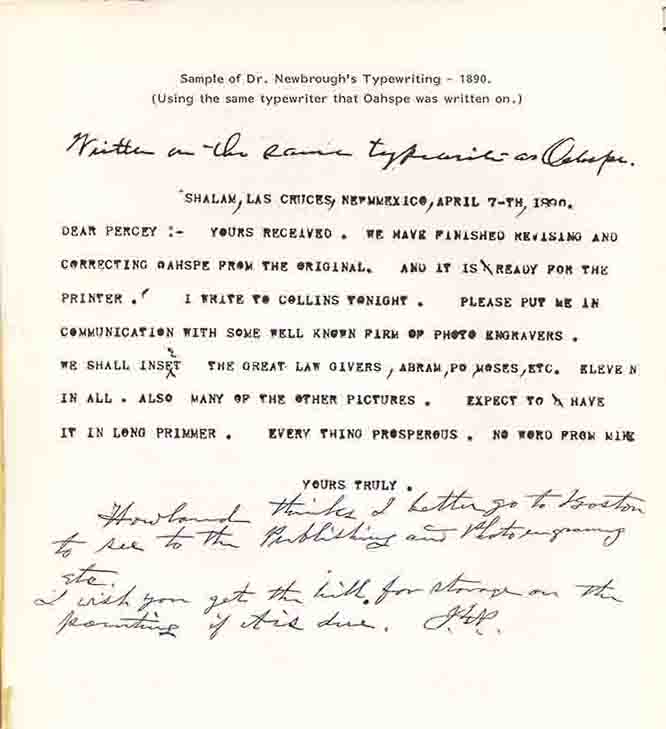
The manuscript of Oahspe was typed in capital letters. An original photo of a note typed by Newbrough on the same typewriter after Oahspe was published, displays capital lettering only, indicating it was typed on the first commercially produced typewriter invented by Sholes and manufactured by Remington. This note also exhibits Newbrough's lack of typing skills, confirming his automatic typing/writing skills that channeled a greater talent than his own to render such a lengthy complex manuscript as Oahspe.
Even though it was produced using a relatively sluggish, cumbersome machine whose keys would jam at higher speeds of typing, the Oahspe Manuscript had to have been typed at approx 75 words per minute to have been completed in 50 weeks at half an hour per day. Although no mortal could type at that speed on this first typewriter, its maximum speed potential was demonstrated by the perfect co-ordination of angelic hands.
The Sholes and Glidden Typewriter
The first commercially successful typewriter was invented in America in 1868 by C. Sholes, C. Glidden and S. Soule. In March 1873, E. Remington and Sons began commercial production of this first typewriter in New York. It typed only capitals with a QWERTY keyboard layout (QWERTY layout was a keylayout to facilitate a faster typing speed). As with most other early typewriters, the type bars would strike upwards hitting the paper on the roll bar below, rather than from the viewers side. This action blocked the view of the characters as they were typed making it impossible to see the print until it finally worked its way into view.
EDITOR'S PREFACE 1882:
When a man holds up a book, and says, "You must believe this, because it says, 'Thus saith the Lord,'" should we not pity that man? Does he comprehend the liberty of man to acquire knowledge?
Any book that imparts knowledge of the life and destiny of man, is a good book. Any book that unfolds the character and person of Jehovih, and the wonder and glory of His creations, isa good book.
When a book gives us information of things we know not of, it should also give us a method of proving that information to be true. This book covers that ground.The day has arrived, when man will not accept proclamations and assertions; he wants plausible reasons, or substantial proofs, that the authority be not merely a presense, but a demonstrable fact.
The time of man-worship is at an end; readers no longer accept a book as good and great, merely because any certain one wrote it. The book must have merits of its own, otherwise it will soon pass out of existence.
When a man says, "I heard the voice of Jehovih, saying," that part of his speech is worthless. When he says, "I heard the voice of Jehovih, saying: 'Do unto others as ye would that they should do unto you,'" then the words become valuable. His assertion of his authority is of noavail in this age of the world. The words purporting to be Jehovih's should, therefore, be the only consideration as to merit. And all men have a right to pass judgment thereon. Is it not the light of Jehovih within all men, that makes them conscious of wisdom and truth? If so, then man's expression of any truth or wisdom is Jehovih's expression.
If a book were to fall down from the sky with Jehovih's signature to it, man would not accept the book on that account. Why, then, should anything be said about how this book was written? It blows nobody's horn; it makes no leader. It is not a destroyer of old systems or religions. It reveals a new one, adapted to this age.
New York, 1882.
